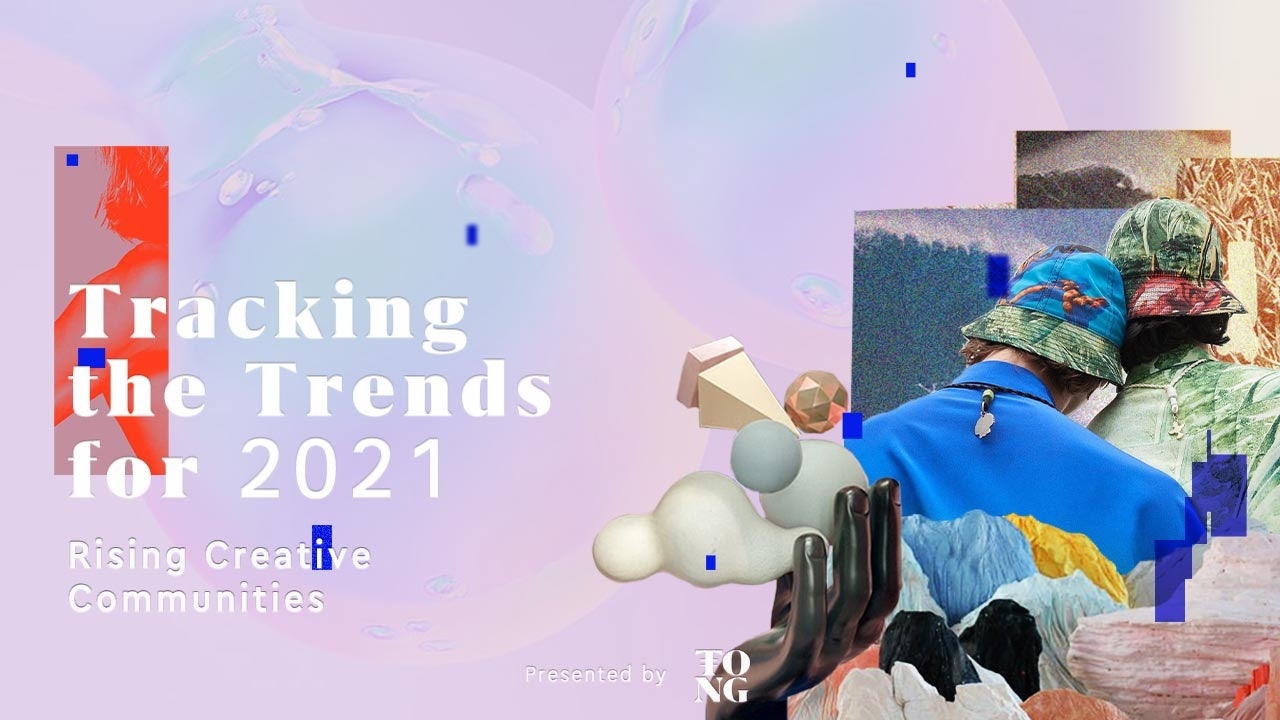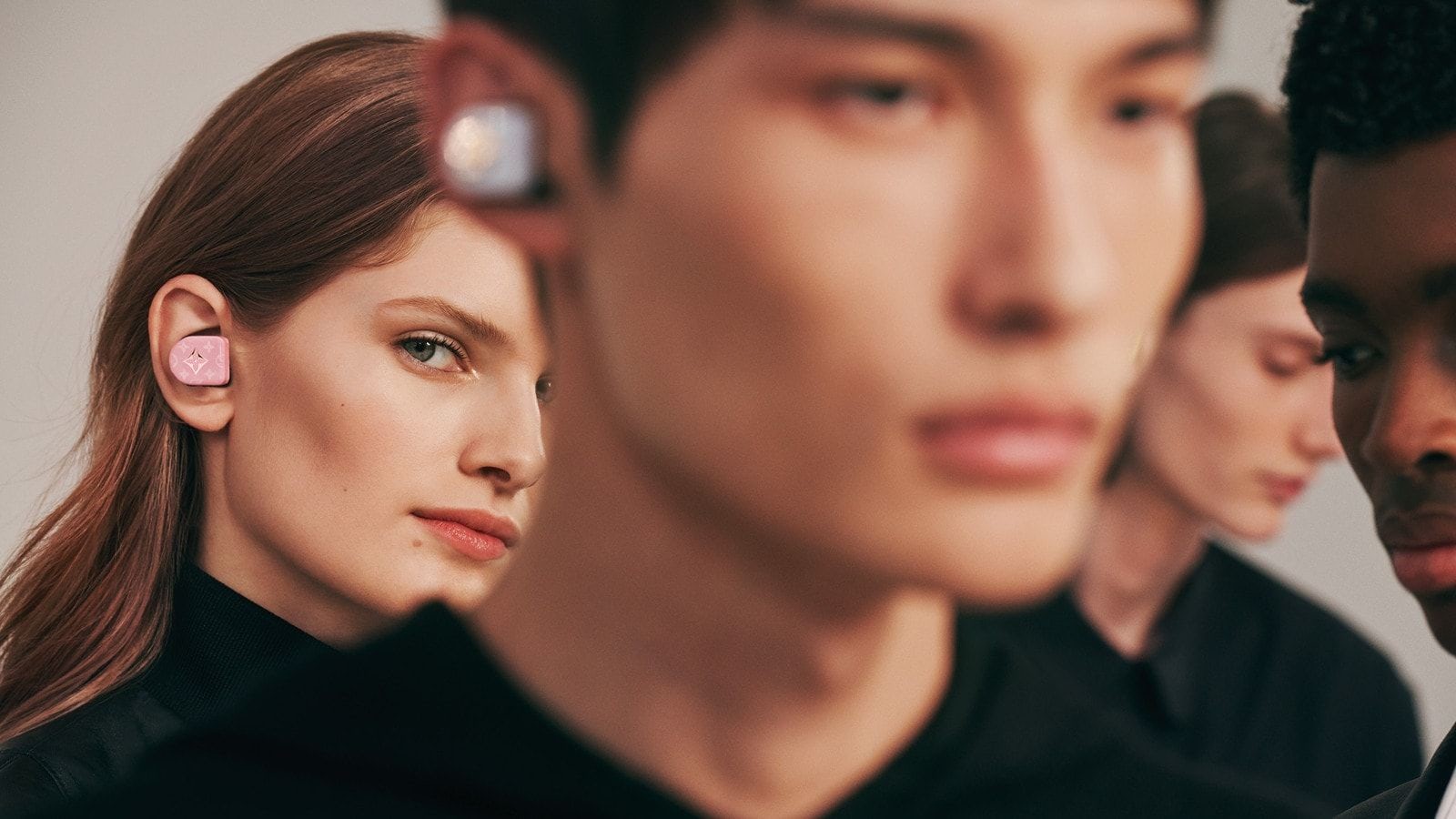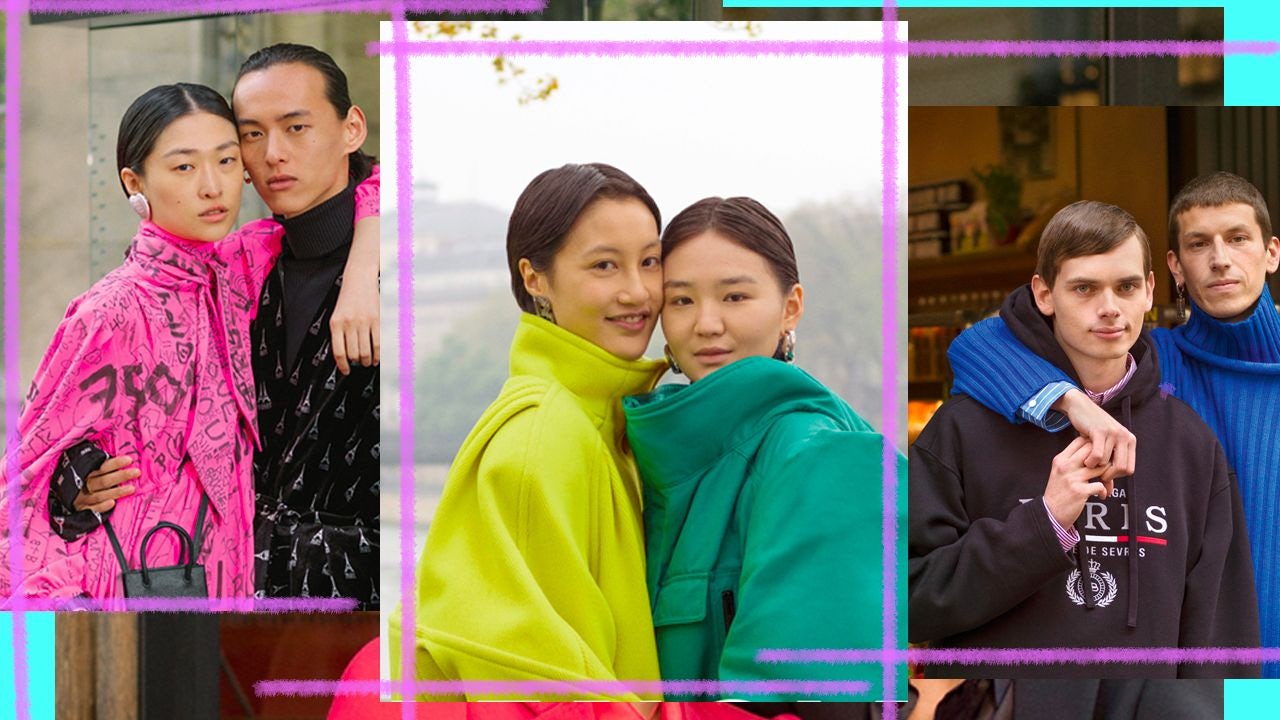Tracking the Trends for 2021#
is produced in partnership with the cross-cultural agency
TONG#
, analyzing four key insights for the coming year. Pulling expertise from the Jing Group’s network of leading B2B publications, this four-part series covers the consumer insights that luxury players must be aware of to survive in post-COVID China. In the last part of the series, we will explore how niche creative communities grow their audiences in China.
Key Takeaways:#
- Tapping into a once largely-ignored audience takes courage and experimentation, and luxury is doing that with gamers. The return-on-investment with this group is still unclear, but brands might have to get there first, so they won’t have to wait in line later.
- Whether it’s through events (offline) or streaming shows (online), brands need to meet consumers where they are spending their time and allow them to try products within immersive scenarios.
- By 2021, there will be certain areas in which domestic brands are sure to fare better than their global counterparts, such as the culturally-sensitive topics of sexual orientation or gender identity.
After being in lockdown for the first few months in 2020, Chinese consumers are eager to make authentic connections, online and offline. Three dynamic communities — gaming, LGBTQ+, and outdoor sports — have begun taking up more space in the public eye, and as such, some smart, nimble brands have found opportunities to tap into these social groups that are bound together by either hobbies or identities.
After China quickly recovered from COVID-19, there’s been a new focus on communities rather than simply paying for luxury brand logos. “China’s new generation of luxury consumers is one that is fiercely independent of both their parents and their international counterparts,” said Adam Knight, the co-founder of the cross-cultural agency TONG. “And tapping creative communities on the ground is an essential strategy if brands are to successfully navigate China's diverse range of trends and tastemakers.”
Millennial and Gen-Z consumers are buying into brands that can represent their identities, creative communities, and hobbies. Therefore, refocusing on brand equity among key target consumer tribes, especially with a focus on younger consumers and their desire for belonging, is an essential strategy in 2021.
Many global brands see community-building as a shortcut to young consumers’ hearts. As luxury shoppers and gamers are seeing a growing overlap, luxury leaders such as Balenciaga, Gucci, and Burberry are now curating game-minded runway shows and content for well-known video games. By creating immersive environments so that local consumers can experience a new sport, global brands like Dior, Descente, and Burton are essentially presenting user scenarios for their products.
In certain communities, though, local brands are growing stronger roots among the consumer base. Compared with global brands that might be timid around China’s national stance on same-sex marriage and other relevant issues, local cosmetics and fashion brands are more comfortable embracing the LGBTQ+ community and the vast market behind it.
In association with TONG, Jing Daily analyzes how international and local brands can connect to three important communities in China: Gaming (by working with video game content or gamifying digital consumers interactions), outdoor sports (by finding aspiring consumers where they are and creating sports content), and LGBTQ+ (by launching inclusive, market-sensitive campaigns and products).
Gaming: being in the same world as gamers#
When thinking of luxury’s target audience, fashionable young girls might be the first group to come to mind. But over recent years, luxury has begun to focus on the untapped potential of millennial and Gen-Z Chinese males. Gaming, which is now considered a young male’s favorite past-time, has quickly become the best channel for precise brand exposure.
From casual gamers to esports, the gaming community’s enthusiasm remains unparalleled. Earlier this month, the release of Cyberpunk 2077 has made news across China, with zealous fans on social media writing game reviews and posting physical in-game kits. On the professional side, esports has been recently approved by the Olympic Council of Asia for inclusion as a medaled sport in the 19th annual Asian Games 2022 in China. Both occurrences stirred up fervor within and outside the gaming circle.
And brands are drawn to the tremendous traffic. China has the world’s largest video gaming industry and is home to more gamers than the combined population of the US, Japan, Germany, France, and the UK, according to a November report by the China Audio-Video and Digital Publishing Association. In recent months, brands such as Balenciaga, Gucci, and Burberry have been keen to gamify their seasonal campaigns, hoping to interact with a game-minded audience.
In early December, Balenciaga released its Fall 2021 collection, Afterworld: The Age of Tomorrow, in China in the form of a video game, which can be found on its local website, Weibo, WeChat, Little Red Book, and Douyin. The collection is set in the year 2031, where each player goes on a hero’s journey, and all the avatars wear styles from the Balenciaga Fall 2021 collection.

Gucci put out a Christmas gift guide on WeChat in mid-December that features a host of friends of the brand presenting the brand’s latest holiday-themed products. The WeChat article comes with a mobile game called Conga Master, which asks the audience to play with their colleagues. The article was viewed over 100,000 times within a week.
And British luxury house Burberry, which broadcasted its 2021 Spring show on the popular gaming livestreaming website Twitch, introduced gaming elements in China by working with the world’s largest game vendor, Tencent. In November, Burberry announced a partnership with Tencent Games within its blockbuster online game Honour of Kings. “Online games are a platform on which we can tell brand stories in ways that we know really resonate with our customers in China,” said Josie Zhang, president of Burberry in China, in a statement.
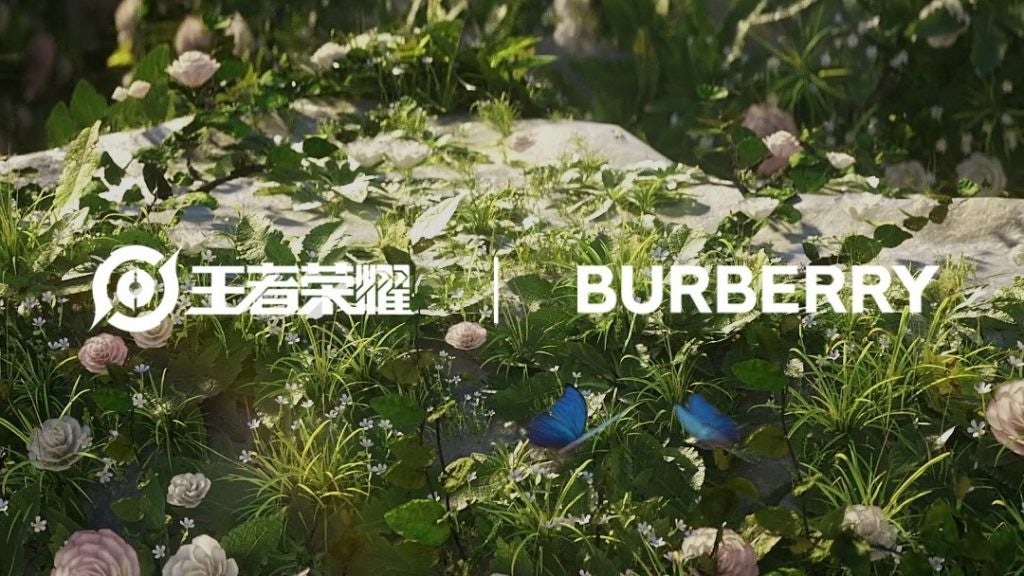
The Bottom Line:#
Tapping into a once largely-ignored audience takes courage and experimentation, and luxury is doing exactly that with gaming. The return on investment on this engagement is still hard to gauge, but brands might have to get there first so that they won’t have to get in line later.
Outdoor Sports: create immersive scenarios for potential customers#
Whether skiing, climbing, or scuba diving, affluent Chinese consumers are becoming increasingly adventurous and willing to splurge on experiences. The lockdown at the beginning of the year and the ongoing travel restrictions have made them even more eager to explore within China’s borders.
Thanks to the government’s support ahead of the 2022 Winter Olympics in the northern city of Zhangjiakou, China’s ski market size in 2022 is expected to grow to nearly 4 billion — an increase of more than 480 percent since 2015, according to a 2019 report by the European research center EU SME Centre.
In early December, the specialized ski brand Burton made its debut in China’s streetwear space by setting up an indoor slope at the Shanghai-based streetwear convention Innersect. In addition to presenting the audience with a professional snowboarding competition called Rail Jam, the brand also used the occasion to launch its collaboration with the Hong Kong-based singer William Chan’s brand, CANOTWAIT, and NEIGHBORHOOD x MINE77.
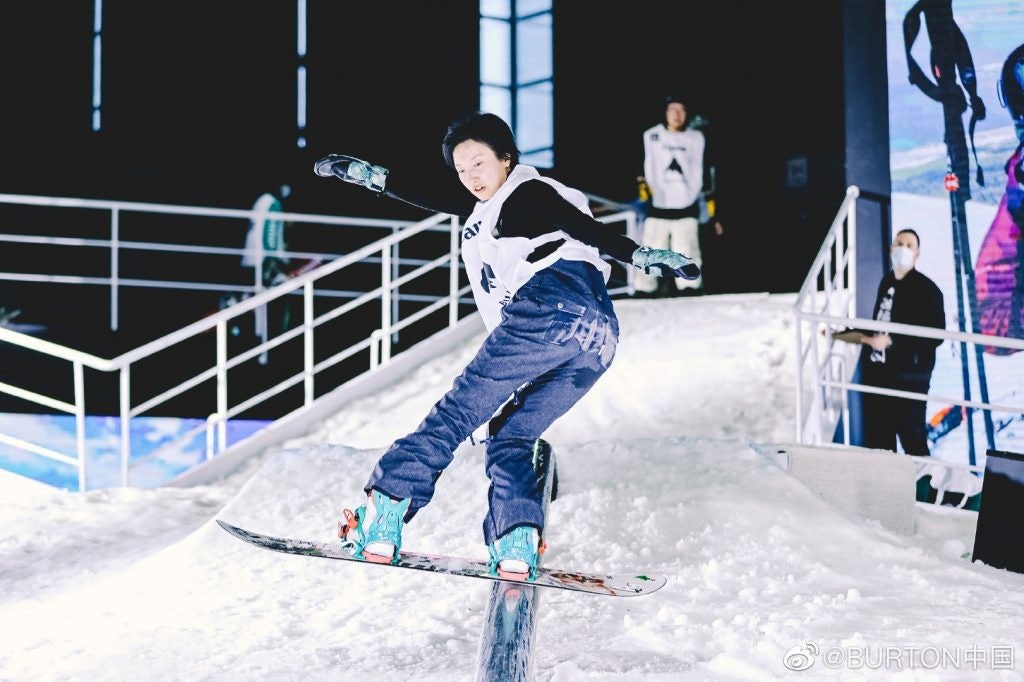
“Given Burton’s relatively large market share in other regions, consumers tend to ‘narrow’ Burton to a snowboard brand, but we are more than that,” said Burton China’s CEO, Craig Alan Smith, to Jing Daily. “We want to up our influence in the lifestyle section of the China market through Innersect.” Smith added that the brand’s booth garnered nearly 30,000 visits over the three-day event.
Meanwhile, Japanese high-end ski brand Descente launched a short entertainment show called “High Above the Clouds” in China this December, featuring guests such as female professional snowboarder Cheng Shuang and the winter sports ambassador Shi Yilong. The show depicts them shopping for Descente gear and trying beginner activities on the slopes. Many WeChat followers commented that they were looking forward to seeing the next season of the show.
On the luxury side, Dior opened a pop-up at the Shanghai luxury mall Plaza 66 for its first men’s ski wear capsule, which was a collaboration between Dior, Descente, AK Ski, and POC. The local campaign was shot at the urban ski training school SNOW51 and featured Dior’s China ambassador Chen Feiyu.
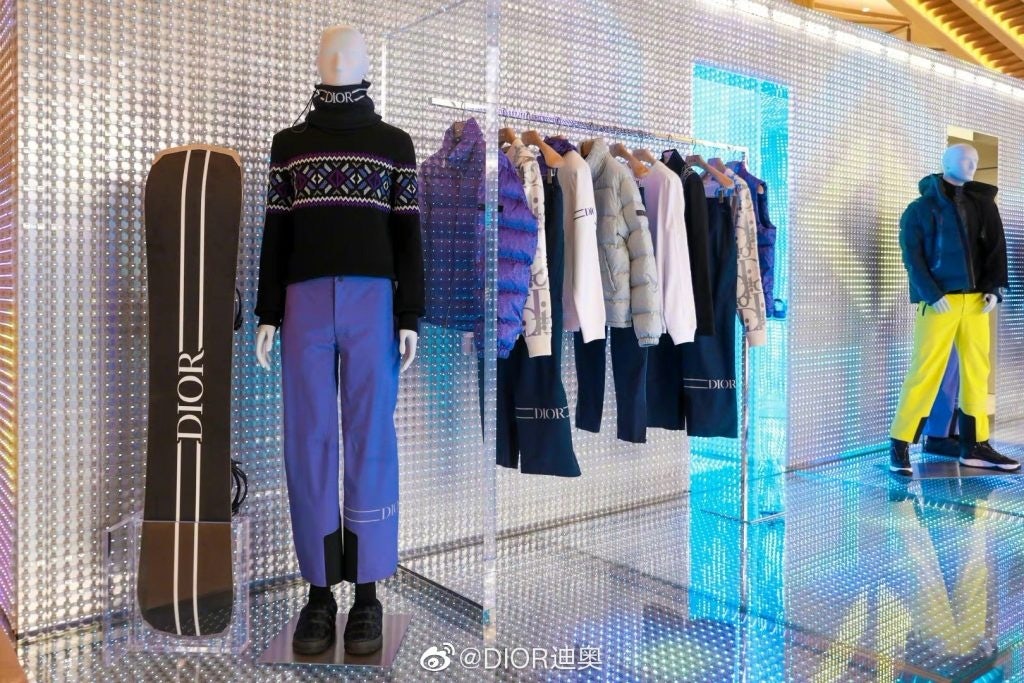
The Bottom Line:#
Whether it’s through events (offline) or streaming shows (online), brands need to meet consumers where they spend their time so they can sample branded products in immersive scenarios.
LGBTQ+: local brands seep inclusivity into products and campaigns#
When consumers need to express their identities, domestic brands can shine by showing their knowledge of these scenes. Given their cultural advantage, local brands have been more daring about embracing the previously overlooked LGBTQ+ community, which has great creative potential and spending power. Over the recent years, representative communities such as Shanghai Pride, Shanghai Queer Film Festival and Beijing Queer Chorus have been on the forefront to champion diversity and raise awareness about shifting gender norms, despite a myriad of challenges. Through events consisting of film screenings, job fairs, forums, and even a road race, Shanghai Pride, which abruptly announced to cancel all future events this August after 12 years of running, had connected members within the LGBTQ+ community and helped others to learn about challenges faced by this under-represented group.
“Pride has a lot of different meanings for different people,” the event’s organizers said in the statement following the cancellation. “For us, it has always been about showing our community that not only is there nothing wrong with who we are, but that our identities and the people that we love are worth celebrating.” Although the organizers did not disclose any reason for the shutter, many supporters on Weibo suspected that it was due to political intervention.
Despite an encouraging development in LGBTQ+ rights at the end of 2019, as a body of the country's highest law-making institution publicly acknowledged petitions seeking to legalize same-sex marriage, the Chinese government is still known for having a closed-off stance on these issues. That explains global brands’ restraint in this area. In fact, Cartier’s Chinese Valentine-themed ad faced a backlash from both sides over captioning a seemingly gay couple as expressing “father-son” love.

Yet, local brands like cosmetics sellers HEDONE and Bosie, are acting as agents of change and are sending inclusive messages to their potential millennial and Gen-Z consumers. One important thing to note is that although certain local brands have succeeded in connecting with the LGBTQ+ community and their allies, they are not putting out activist-like slogans or directly pointing to a certain community. Instead, they are showing subtle support through progressive visuals, content, and models.
The C-Beauty brand HEDONE has taken the lead in creating inclusive social conversations. Intending to represent young Chinese consumer identities, the two-year-old brand launched a series of lip glosses inspired by the seven sins of Catholicism called Existence. The “Closet” dark purple lip gloss, worn by a man in the video launch campaign, symbolizes LGBTQ+ people whose sexual orientation or gender identities are a secret. The brand also featured members of the LGBTQ+ community in its product campaigns over the years — without highlighting their identities — which was well-received by social followers.
When it comes to clothing, China's first unisex brand, Bosie (founded in 2018), has been celebrated by a dedicated Gen-Z following. In May, the brand told local media Luxe that 70 percent of its main customer base was born after 1995, and 20 percent of them are under 20. There are also many LGBTQ+ consumers behind the brand. Aside from young consumers, Bosie has appealed to the capital market, and it closed three rounds of investment within two years.
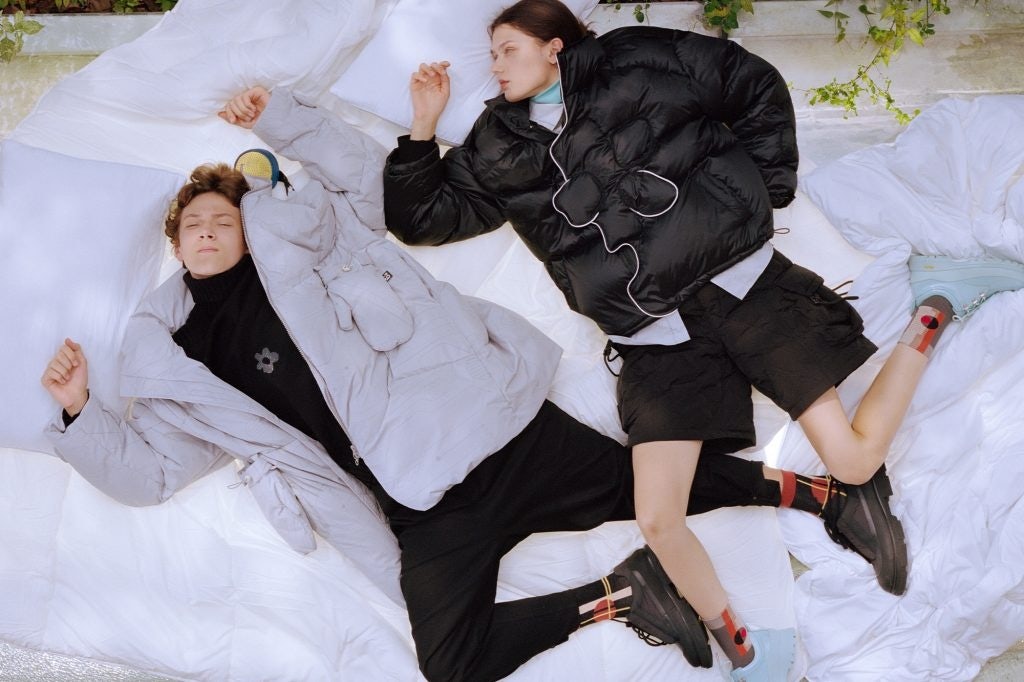
The Bottom Line:#
Brands should be authentic in connecting with LGBTQ+ people and their allies. In a culturally sensitive market, brands should express encouragement and support for the community in more nuanced ways.
Both global and local brands need to stay alert to rising creative communities and market responses in a post-COVID-19 retail environment since the mainstream China market has become increasingly saturated with competition.
It is important to focus on an existing target audience, but, according to Knight, preferences can change rapidly in China. “This is a generation that values experience and experimentation above all else,” he said. “Their natural curiosity leads to a level of fickleness in their brand loyalties that are far greater than in previous generations. And if brands become complacent and fail to innovate in a way that excites their audiences, they risk irrelevance.”
